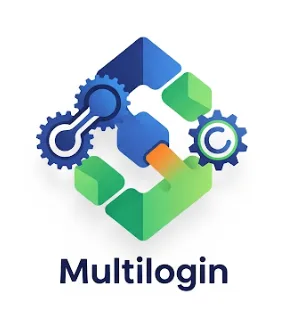
Why Account Encryption Matters: Antidetect Browsers Aren’t Equal
In the world of antidetect browsers, most comparisons focus on features like fingerprint spoofing or proxy integration. But one critical factor is often overlooked:
👉 Are your browser profiles encrypted and secure?
If you’re managing sensitive assets like affiliate accounts, Facebook Ads, or crypto wallets, this question isn’t optional — it’s essential.
Let’s break down why account encryption is the hidden line between real stealth and real risk.
🔐 What Is Profile Encryption in Antidetect Browsers?
When you create a browser profile, the software stores cookies, login sessions, cache, browser fingerprints, and local storage.
If these aren’t encrypted, anyone with access to your device — or even a VPS provider — can:
- Copy and clone your browser profile
- Export cookies and reuse sessions elsewhere
- Read saved credentials or data
Most free or cheap browsers store profile data in plain folders on disk. With basic file access, everything is exposed.
🚫 Examples of Weak Encryption (or None at All)
Let’s examine how some common browsers handle this:
| Browser | Profile Storage Method | Encryption Level |
|---|---|---|
| AdsPower | Local folder in AppData | ❌ Unencrypted |
| Dolphin Anty | SQLite storage | ❌ Partial obfuscation |
| GoLogin | Cloud sync, but local temp cache | ⚠️ Partially encrypted |
| Incogniton | Local profile cache | ⚠️ File masking only |
| Multilogin | AES-encrypted local + sandboxed | ✅ Full profile encryption 🔒 |
🔄 Why This Matters for Scaling Teams
If you’re running a team — or managing multiple profiles on a VPS — encryption isn’t a “bonus feature”, it’s a non-negotiable shield.
Without it:
- A team member can copy profiles when they leave
- A bad VPS provider can extract sessions remotely
- Malware or RDP tools can compromise data silently
With encryption, none of those scenarios work.
Multilogin also allows you to sync profiles securely across devices without exposing raw data — a key advantage for affiliate teams or media buying groups.
🧠 Real-World Scenario: Data Breach from Unencrypted Folder
A crypto marketer stored their browser profiles using a “lightweight” antidetect browser.
One day, a co-worker copied the profile folder and reused the MetaMask session — resulting in wallet theft of over $12,000.
With Multilogin, such an attack is impossible by design.
🎁 50% OFF Multilogin – Protect Your Accounts Now
If you want real security — not just fake “privacy” — try the encrypted profile system inside Multilogin:
🔐 AES-encrypted containers
🛡️ Isolated fingerprint + proxy config
🚫 No exportable folders
📱 Secure sync across devices
🎟️ Use coupon code ADBNEW50 to get 50% off your first plan
🔗 Try it risk-free via this private link
Final Thoughts
In 2025, browser-level stealth isn’t just about spoofing — it’s about security.
Without proper profile encryption, your entire operation can be cloned, exposed, or stolen in seconds.
If you’re serious about long-term stability and privacy, choose a tool that puts encryption at its core — not just as a marketing checkbox.
Multilogin encrypts, isolates, and protects — because your business deserves it.
Leave a Reply
You must be logged in to post a comment.